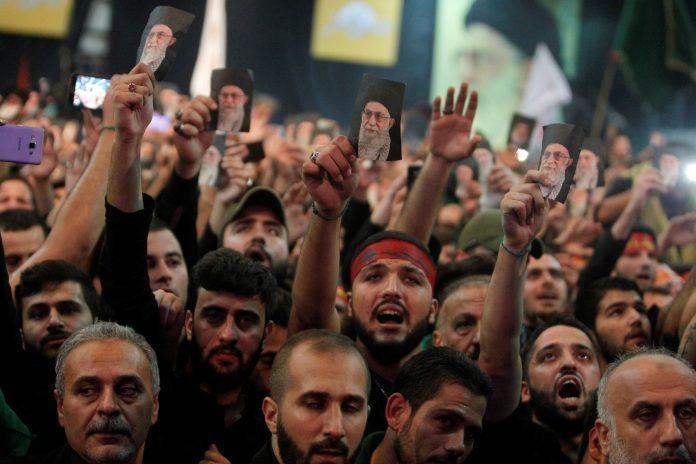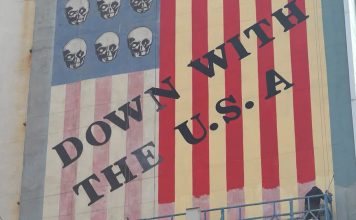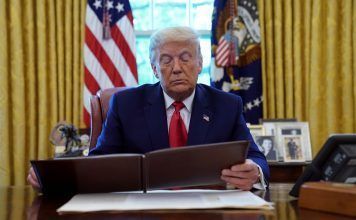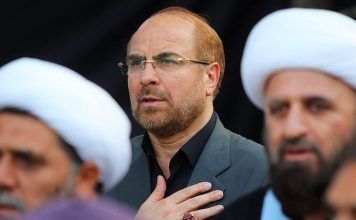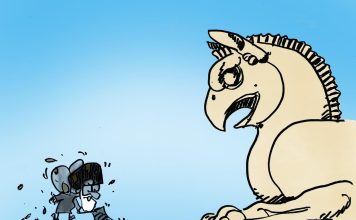By Ahmad Rafat
The head of Lebanon’s Maronite Church, Patriarch Bechara Boutros al-Rahi, has warned against the perils facing the country and has called for early parliamentary elections.
“Lebanon is facing its biggest danger,” Patriarch al-Rahi said in his Sunday sermon on Aug. 16. “We must start immediately with change and quickly hold early parliamentary elections — without the distraction of discussing a new election law — and form a new government.”
Lebanon Faces ‘Biggest Danger’, Needs Elections, Says Patriarch
The Lebanese government resigned following days of angry street protests, triggered by a devastating explosion at Port Beirut on Aug. 4 that killed at least 172 people, injured 6,000 others, and left some 300,000 homeless.
French President Emmanuel Macron, who traveled to Beirut on Aug. 6 to witness the devastation, pledged to help the Lebanese people and called for the formation of a “unity government” to address the current situation facing the country.
Saad Kiwan, a Beirut-based Lebanese political analyst, said he did not believe a “unity government” and early parliamentary elections would address the demands of the Lebanese people, who poured into the streets of Beirut in October 2019, protesting against the government’s mishandling of the economic crisis.
The global coronavirus lockdown forced the protesters to stay home, but many returned to the streets after the easing of the lockdown in June. However, this time, they are demanding fundamental reforms in the country, including the disarming of the Iranian-backed Hezbollah and implementation of UN Security Council resolutions 1559, 1680, and 1701.
“Many people have concluded that Hezbollah has caused most of the problems in Lebanon,” Mr. Kiwan told Kayhan Life. “Protesters have demanded the government to implement UN Security Council resolutions 1559, 1680 and 1701.”
“Resolution 1559, adopted in September 2004, calls ‘for the free and fair presidential elections, disarming of all militia forces and the remaining foreign forces to withdraw from the country,’” Kiwan explained. “The resolution has never been fully implemented because Hezbollah does not consider itself a militia group, but a resistance force entitled to bear arms.”
[aesop_image img=”https://kayhanlife.com/wp-content/uploads/2017/05/ShowImage.jpg” panorama=”off” credit=”Pro-Iranian Hezbollah guerrillas, riding on an APC M113. REUTERS” align=”center” lightbox=”on” captionsrc=”custom” captionposition=”left” revealfx=”off” overlay_revealfx=”off”]
“Resolution 1680 was adopted in May 2006, ‘urging Syria to respond positively to Lebanon’s request to delineate borders,’” Kiwan noted. “It called for the Lebanese army to monitor the country’s borders with Syria. However, Hezbollah is controlling most of the Syrian-Lebanese border.”
“Resolution 1701, adopted in 2006, was ‘intended to resolve the 2006 Lebanon War,’” Kiwan said. “Under Resolution 1701, the Lebanese military and 12,000 UN peacekeeping forces patrol the Syrian-Lebanese border. Hezbollah forces are at the Israeli border, and a wrong move or miscalculation can restart the war between Israel and Lebanon.”
“Many people believe that only complete implementation of these three resolutions can release Lebanon from the Islamic Republic and Hezbollah’s grips and help the country achieve independence,” Kiwan noted. “The presence of Hezbollah in Syria, however, poses a unique problem.”
[aesop_image img=”https://kayhanlife.com/wp-content/uploads/2018/03/Capture-18.jpg” panorama=”off” credit=”FILE PHOTO: A Hezbollah fighter stands at a watch tower at Juroud Arsal, the Syria-Lebanon border. REUTERS/Ali Hashisho” align=”center” lightbox=”on” captionsrc=”custom” captionposition=”left” revealfx=”off” overlay_revealfx=”off”]
“The U.S. Congress recently passed the Caesar Act, which will make it next to impossible for Lebanon and Syria to be economic partners,” Kiwan explained. “The Caesar Act will hasten the collapse of Lebanon’s fragile economy.”
The Caesar Syria Civilian Protection Act, also known as the Caesar Act, sanctions the Syrian government, including President Bashar al-Assad, for war crimes against the Syrian population. Caesar is a pseudonym for a Syrian military photographer who, in 2014, smuggled out and published thousands of pictures depicting torture and murder in Syrian prisons.
Many of the protesters who have clashed with the police and security forces in Beirut in recent days have called for a fundamental change in the country’s governing system. They do not believe that a new government can tackle the current crisis, given that Lebanon’s entire sectarian political structure was created after the 1975-1990 civil war, which resulted in the leaders of warring factions to share power.
Christians and Shia and Sunni Muslims fill most senior government and economic posts in Lebanon under a power-sharing agreement. The accord ended the civil and sectarian war in 1990. Under the agreement, the country elects a Christian president, Sunnis control the government, and the speaker of the Parliament is a Shia.
“There are two ways to change the governing system,” Kiwan noted. “A revolution would overhaul the entire system. Alternatively, it could change over many years. In the second scenario, all parties must work together to hold early parliamentary elections. However, it is unlikely that political parties would give up their interests and cooperate with the current officials to reform the system, which will ultimately take away their privileges.”
Lebanon cannot be without a prime minister for too long, following the resignation of Hassan Diab earlier this month, given the extraordinary situation in the country in the explosion’s aftermath that has destroyed a large section of Beirut and has left some 300,000 people homeless. Without a government, Lebanon will not receive the international help President Macron has promised.
There is no consensus among political parties on the makeup of the next Lebanese government. Hezbollah and the Amal Movement (Hope Movement) — both Shia — and their Christian ally, the Free Patriotic Movement (FPM), support a “national unity government,” which includes all political parties.
The FPM was founded by the current president of Lebanon, Michel Naim Aoun, and is led by his son-in-law Gebran Bassil.
Other Lebanese political parties (Sunnis, Christians, and Druze) do not oppose such a government. They would also support a government comprising technocrats, as long as it is not led by someone who is backed by Hezbollah and Michel Aoun.
Former Prime Minister Hassan Diab’s government, which resigned recently, also comprised many technocrats, who were hand-picked by Hezbollah, the Amal Movement, and the FPM.
Protesters do not want political parties to take part or interfere in the formation of the new government.
[aesop_image img=”https://kayhanlife.com/wp-content/uploads/2020/08/2020-08-08T165128Z_518163142_RC2S9I9ZJBS4_RTRMADP_3_LEBANON-SECURITY-BLAST-PROTESTS-scaled.jpg” panorama=”off” credit=”FILE PHOTO: An injured demonstrator is evacuated during a protest following the blast, in Beirut, Lebanon August 8, 2020. REUTERS/Hannah McKay” align=”center” lightbox=”on” captionsrc=”custom” captionposition=”left” revealfx=”off” overlay_revealfx=”off”]
In recent days, Nawaf Salam has been mentioned as a potential candidate to head the new government. Mr. Salam is a Lebanese diplomat, jurist, and academic. He is a judge on the International Court of Justice (ICJ) in The Hague, Netherlands. He also served as Lebanon’s ambassador to the UN from 2007 until 2017.
Salam’s name also came up as a viable candidate to head the government of Lebanon in December 2019. However, Hezbollah had vehemently opposed his candidacy, describing him as being “too close to America.” Hezbollah will most likely oppose Salam’s nomination again, but it may back down under overwhelming domestic and international pressure.
Hezbollah will never agree to disarm in line with UN resolution 1559. The Islamic Republic will also oppose the idea.
Ibrahim Mousawi, one of the 13 Hezbollah members of the Lebanese Parliament, recently warned: “We will respond decisively to any measure aimed at disarming Hezbollah, which is Lebanon’s resistance force against Israel.”
Mr. Mousawi described protesters as a “small minority being used by the enemies of Lebanon.”
In an interview with the Tehran-based Khabar Online news agency on Aug. 12, Hassan Hanizadeh, an expert in Middle East politics, speculated about conspiracies hatched by the former Prime Minister of Lebanon Saad Hariri and Samir Farid Geagea and foreign powers including France, Israel, and the U.S.
Saad Hariri was in office from Dec. 18, 2016, until Jan. 21 of this year. He is the leader of the Tayyar Al-Mustaqbal (Future Movement).
Samir Farid Geagea is the executive chairman of the Lebanese Forces, a Christian political party in Lebanon.
“Hezbollah’s chances of gaining more seats in the Lebanese Parliament will be significantly reduced if elections were to be held in the next three months,” Mr. Hanizadeh said. “As a result, Hezbollah will come under more pressure which aims to diminish its role in Lebanon’s politics and security, and ultimately disarm the organization.”
“The leaders of the Axis of Resistance must start countering these measures now,” Hanizadeh noted. “Media with links to the Axis of Resistance must make an intelligent and concerted effort to expose the plots hatched by the Arab-Israeli-American triangle against Hezbollah and the axis.”
“The Islamic Republic and Hezbollah are not in a sound position in Lebanon,” Saad Kiwan noted. “They may have to accept a government in Lebanon that is not accommodating to them as long as it is not outright hostile towards them.”
Kiwan warned that Hezbollah might start a civil war in Lebanon with Iran’s blessings, but added: “It is unlikely that Tehran would open a new battlefront, given the failure of its military campaigns in Syria, Iraq, and Yemen, and the severe political and financial problems it is facing.”
This article was translated and adapted from Persian by Fardine Hamidi.

